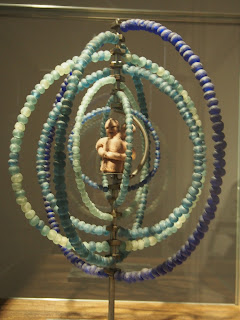Excerpt from the catalogue:
'Love in the 20th Century, according to the poet Arthur Rimbaud, had to be reinvented. Nowadays, in a world full of crisis and conflicts, tensed between opposite ideals, and submitted to increased individualism and intense consumption, love is seriously threatened and regularly challenged. Paradoxically, love in the 21st Century has never been so linked to individual identity and happiness.
What We Call Love explores how the notion of love has evolved within the 20th century. How have seismic sociological changes concerning sexuality, marriage and intimacy, alongside developments in gender issues, affected the way we conceive love today? How does visual art, from Surrealism to the present day, deal with love and what can these artistic representations tell us about what love means in our contemporary culture?Drawing on contemporary sociology, neuroscience and of course art, What We Call Love sheds some light on these questions. While we cannot give a final definition of “what is love” we can examine how artists have represented it. Presented in three chapters, the exhibition draws on Surrealism’s idea of love as “amour fou” (crazy love), new visions of love which emerged after the 60’s and the often problematic concerns of contemporary love.'
 |
| 'The Couple', 1956 by Meret Oppenheim |
 |
| 'La Robe de Marles,' and 'Le Divorce,' by Sophie Calle |
'Fumillienraum (Family Room), by Miriam Cahn
Works by Louise Bourgeois, both titled, 'Couple' made in different years.
'The Kiss,' and 'Lover Snakes,' by Dorothy Cross
Another Louise Bourgeois
 |
| 'Incommunicado,' by Mona Hatoum |
 |
| 'You Whom I Love a Thousand Times,' 2014 by Annabel Daou |
 |
| Text and installation by Rebecca Horn |
Tracey Moffatt LOVE Trailer from Napier School of Computing on Vimeo.
A video piece by Tracey Mofatt, titled, 'Love,' one of my favourite pieces in the show. this is a short trailer from the film.
I also saw an exhibition by Grace Weir.
 |
| 'Forgetting,' by Grace Weir |
 |
| by Kiki Smith |
 |
| 'Anabusis,' by Hughie O'Donoghue |
 |
| 'Three Steps Toward the Sea,' by Edward Allington |


















